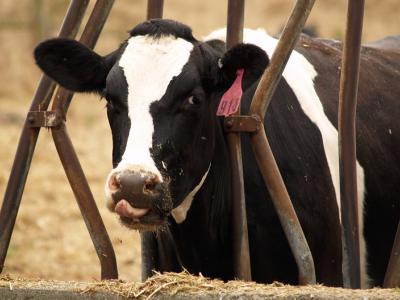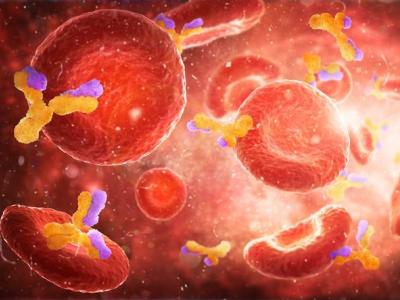Study describes how pandemic, multidrug-resistant E coli clone emerged
A study yesterday in the Proceedings of the National Academy of Sciences describes the unique emergence of the pandemic multidrug-resistant Escherichia coli clone ST1193.
In the study, scientists from the University of Washington discovered that ST1193 did not acquire high-level resistance to fluoroquinolones through the well-established evolutionary pathway of gradual, stepwise acquisition of mutations in the quinolone resistance-determining regions (QRDRs) of the GyrA and ParC proteins. Instead, they found that the three mutations in the proteins occurred all at once, as part of 11 simultaneous homologous DNA recombination events involving two phylogenetically distant strains of E coli—the uropathogenic clonal complex ST14 and the fluoroquinolone resistant ST10. Further analysis indicates this transfer may have occurred as recently as 12 years ago.
"To our knowledge, such a phenomenon has not been described either in nature or experimentally and shows the power of chromosomal core gene transfer and exchange for adaptive evolution," the authors of the study write.
They add that the findings are important for understanding how successful antibiotic-resistant bacterial strains emerge under the selective pressure created by antibiotic overuse, and suggest that the transfer of large segments of chromosomal DNA may be widespread and represent a significant mechanism of bacterial adaptation.
A July 2018 study in Clinical Infectious Diseases, conducted by some of the same scientists as the current study, found that ST1193—which has also shown resistance to trimethoprim-sulfamethoxazole and tetracycline—accounted for nearly a quarter of the 1,300 fluoroquinolone-resistant E coli isolates collected from nine US hospitals in 2016-17, making it the second-most prevalent clonal group identified. The study also found that ST1193 appears to target younger patients than ST131 H30, the most prevalent E coli clonal group identified among the isolates.
Jul 1 Proc Natl Acad Sci study
Jul 26, 2018, CIDRAP News scan
Group calls out search engines, governments to fight anti-vaxx sentiment
A group of public health leaders published todaya "Salzburg Statement on Vaccination Acceptance" in the Journal of Health Communication—a new set of guidelines aimed at reducing the growing global threat of anti-vaccine sentiment.
The statement was co-signed by the World Health Organization's International Working Group (IWG) on Vaccination and Public Health Solutions. Among several recommendations, the authors said search engines and social media platforms need to monitor and limit anti-vaccine statements the way they currently look for sexually explicit, violent and threatening messages.
Governments should also support mandatory childhood vaccination, and disseminate accurate information on vaccine safety, the authors of the document say.
"We are alarmed that the WHO this year declared vaccine hesitancy a top-ten international public health problem," said Scott Ratzan, MD, MPA, leading author of the statement, in a news release from the journal's publisher. "This is a man-made, dangerous and wholly unnecessary crisis. We intend to keep up a steady drumbeat of accurate vaccine communications until the traditional public consensus in support of childhood immunization is restored."
Ratzan, a professor with the Mailman School of Public Health at Columbia University, is the founding editor of the Journal of Health Communication and founder of the IWG on Vaccination and Public Health Solutions.
Jul 2 J Health Commun statement
Jul 2 Taylor & Francis Group press release
Medical Board of California investigates physicians for vaccine exemptions
The Medical Board of California is investigating four physicians for issuing questionable medical exemptions for vaccines, according to Kaiser Health News.
The investigations come as California battles a measles outbreak and considers a new law that would further limit how many children would be exempted from vaccinations.
Two Sacramento pediatricians and two Santa Rosa physicians have been accused of writing inappropriate exemptions. Last month the state's Department of Consumer Affairs, which oversees the medical board, sued in state court to obtain the medical records for patients of the Sacramento-area pediatricians.
Court documents show the pediatricians granting exemptions because of food allergies, "neurological vulnerability," and a family history of mental health disorders.
The proposed SB-276 would limit exemptions to only those supported by the US Centers for Disease Control and Prevention. According to the Sacramento Bee, the bill passed a Senate vote in May and is awaiting a vote in the state Assembly.
In 2015, after a large measles outbreak in Disneyland, California banned all philosophical and religious exemptions for immunizations. So far this year, California has recorded 55 measles cases as the country grapples with its largest measles outbreak in decades.
Jul 1 Kaiser Health News story
Jun 10 Sacramento Bee story












